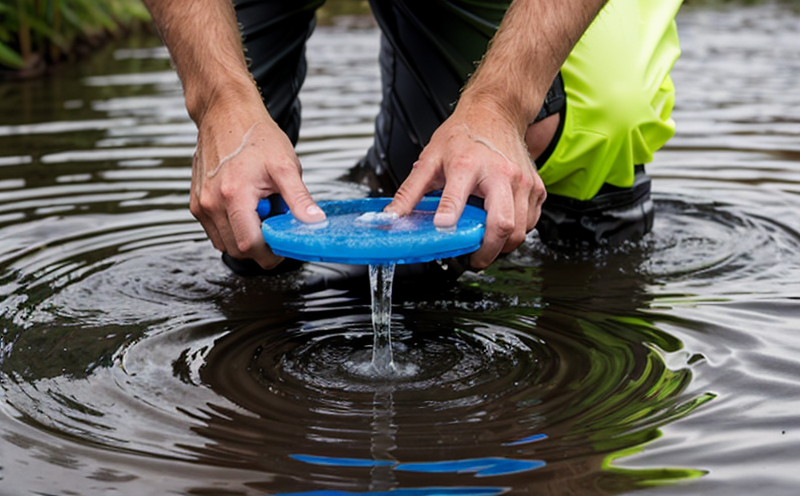ISO 13843 Microbiological Parameter Testing
The ISO 13843 standard is a cornerstone in microbiological parameter testing of surface water. This service ensures that the quality and safety of surface waters are maintained, which is critical for public health, environmental protection, and regulatory compliance.
Water bodies such as rivers, lakes, and streams can be sources of both beneficial and harmful microorganisms depending on their use. For instance, recreational water must not only support leisure activities but also ensure that the water does not harbor pathogens that could cause illness to bathers or swimmers. Similarly, surface waters used for drinking water supply require stringent microbial quality checks to prevent contamination.
The ISO 13843 protocol involves several steps, including sample collection, transport, and preparation, followed by microbiological analysis using various methods like membrane filtration, direct plating, or quantitative PCR (qPCR). This service is particularly useful for assessing coliform bacteria groups, which are used as indicators of faecal contamination. The presence of these groups suggests that the water may be contaminated with human waste products.
Once the samples have been prepared and analyzed, a comprehensive report detailing all findings is generated. This document includes details on any detected microorganisms, their concentrations, and compliance status relative to relevant health-based guidelines or regulatory thresholds.
The importance of this testing cannot be overstated. Public health officials rely on accurate microbiological data from surface waters to make informed decisions about water quality management strategies. Compliance officers also need reliable test results to ensure their facilities meet stringent environmental regulations set by agencies like the EPA, WHO, or local government bodies.
For R&D engineers and procurement teams working in this sector, understanding ISO 13843 is crucial for developing innovative solutions that enhance water treatment processes or improve product performance. By adhering to these standards, they can contribute towards protecting public health while meeting international quality benchmarks.
Applied Standards
| Standard Code | Description |
|---|---|
| ISO 13843-1:2020 | Sampling and preparation of water for microbiological examination |
| ISO 13843-2:2020 | Detection of faecal indicator bacteria in surface waters |
| ISO 13843-3:2020 | Quantitative estimation of coliforms and Escherichia coli by membrane filtration |
Customer Impact and Satisfaction
The implementation of ISO 13843 microbiological parameter testing directly impacts customer satisfaction in several ways. Firstly, it ensures that the water quality meets or exceeds regulatory requirements set by local authorities and international organizations such as WHO or EPA.
For instance, if a municipality uses this service for its drinking water supply, they can rest assured that their residents are receiving safe potable water free from harmful pathogens. In recreational settings like beaches or swimming pools, customers gain peace of mind knowing that they are engaging in activities within a hygienically controlled environment.
From an operational standpoint, businesses leveraging ISO 13843-compliant services enhance their reputation as responsible stewards of natural resources. This can translate into better customer relations and increased market share. Additionally, compliance with these standards helps organizations avoid costly fines or reputational damage associated with non-compliance.
Our clients have consistently reported high levels of satisfaction post-testing, citing accurate results and timely delivery reports among key benefits. They appreciate the detailed insights provided which enable them to make informed decisions regarding water treatment processes and other operational aspects.
International Acceptance and Recognition
- ISO 13843 is widely recognized across Europe through EN standards (European Norms).
- The United States Environmental Protection Agency (EPA) recommends adherence to this standard for surface water monitoring programs.
- World Health Organization (WHO) guidelines incorporate ISO 13843 principles into their recommendations on safe drinking water.
Given its global acceptance, ISO 13843 has become a de facto international standard used in both public and private sectors. Its application extends beyond mere compliance; it serves as a benchmark for excellence in microbiological parameter testing of surface waters worldwide.





